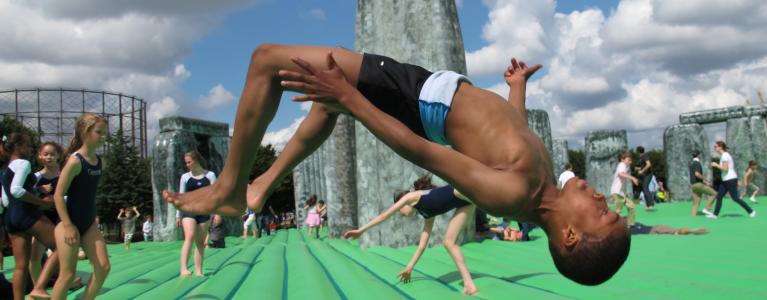
In some respects the London Olympic and Paralympic Games feel like a long time ago. With a new Mayor and more recently, a new Prime Minister, much has changed in London and across the UK in the last four years.
With only a week until the Opening Ceremony of Rio 2016, we’ve been feeling nostalgic and this blog looks back at what we did in 2012, how some aspects of emergency preparedness in London have changed since then, and provides some advice for anyone getting away this summer.
I joined London Resilience in 2011. With slightly more than one year to go, planning and preparation for the Games by emergency responders was already at an advanced stage, but there was still a lot of work to do.
Much of that first year was spent working with partners, LOCOG (the Olympic Organising Committee) and Government to provide assurance that London had the necessary capabilities in place.
Many of the risks that we had planned for didn’t occur, but going through the planning process was essential to making sure all responders knew their roles and responsibilities, and that coordinated response and information could be provided.
For 61 days during the Games, I managed a control room together with partners agencies which meant that in the unlikely event of an emergency, structures were in place to respond. In total we were involved in 154 incidents (this ranged from flooding and cyber attacks to large fires and suspect packages), many of which were small-scale because picking up issues early helped prevent them escalating.
Our partner organisations learnt a lot in both the planning and delivery of the Olympics, and that learning has informed our subsequent work and emergency plans.
Hosting the Olympics carries similar challenges regardless of Host City, for instance managing the impact of additional traffic on transport networks and ensuring safety and security of sporting venues.
However, the Games this summer occur in a world which has faced recent attacks in public spaces and one which continues to experience internationally significant outbreaks of disease like Zika. This will have added additional complexity to their planning.
My advice, if you’re travelling (particularly to Brazil, but this applies wherever you’re going on holiday) would be:
- Be aware of the risk – one of the best places to get information is the Foreign and Commonwealth Office website and the #GetReadyForRio advice
- Take a look at the 5 steps suggested by Chief Medical Officer Prof Dame Sally Davies on Zika
- Make sure you’ve got the appropriate vaccinations and insurance cover for your trip
- Stay safe in the sunshine by using sunscreen and keeping hydrated
- Ensure that your family knows the number to contact the emergency services – 112 is free of charge and works on most mobile phone networks, but double check for your destination
- And don’t forget to prepare your home whilst you’re away. Follow this CrimeStoppers advice.
We wish our colleagues in Brazil, who have been preparing for the Olympics for many years, all the very best for a safe and secure Games, we know from experience how much work it takes.
If you’re getting away then we hope you have a great break,
Matt – London Resilience Officer